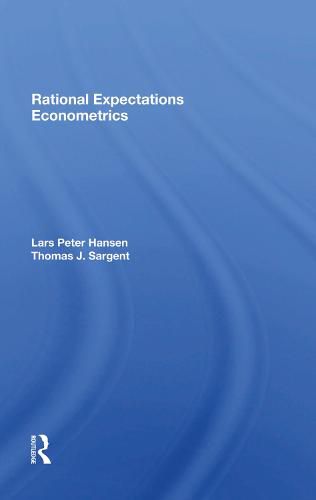Readings Newsletter
Become a Readings Member to make your shopping experience even easier.
Sign in or sign up for free!
You’re not far away from qualifying for FREE standard shipping within Australia
You’ve qualified for FREE standard shipping within Australia
The cart is loading…






At the core of the rational expectations revolution is the insight that economic policy does not operate independently of economic agents’ knowledge of that policy and their expectations of the effects of that policy. This means that there are very complicated feedback relationships existing between policy and the behaviour of economic agents, and these relationships pose very difficult problems in econometrics when one tries to exploit the rational expectations insight in formal economic modelling. This volume consists of work by two rational expectations pioneers dealing with the nuts and bolts problems of modelling the complications introduced by rational expectations. Each paper deals with aspects of the problem of making inferences about parameters of a dynamic economic model on the basis of time series observations. Each exploits restrictions on an econometric model imposed by the hypothesis that agents within the model have rational expectations.
$9.00 standard shipping within Australia
FREE standard shipping within Australia for orders over $100.00
Express & International shipping calculated at checkout
At the core of the rational expectations revolution is the insight that economic policy does not operate independently of economic agents’ knowledge of that policy and their expectations of the effects of that policy. This means that there are very complicated feedback relationships existing between policy and the behaviour of economic agents, and these relationships pose very difficult problems in econometrics when one tries to exploit the rational expectations insight in formal economic modelling. This volume consists of work by two rational expectations pioneers dealing with the nuts and bolts problems of modelling the complications introduced by rational expectations. Each paper deals with aspects of the problem of making inferences about parameters of a dynamic economic model on the basis of time series observations. Each exploits restrictions on an econometric model imposed by the hypothesis that agents within the model have rational expectations.